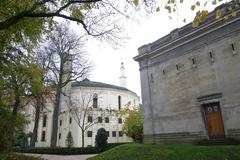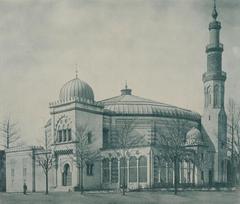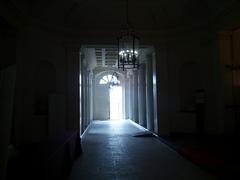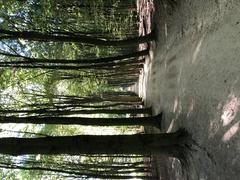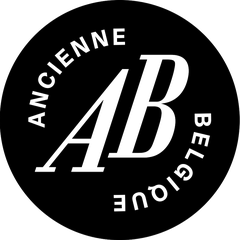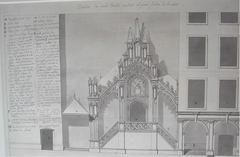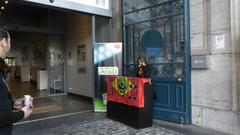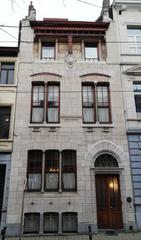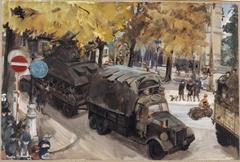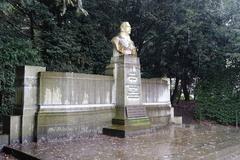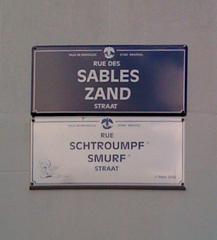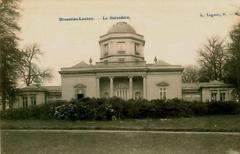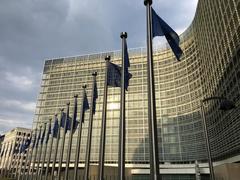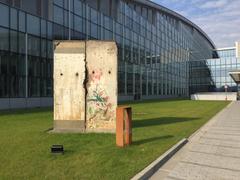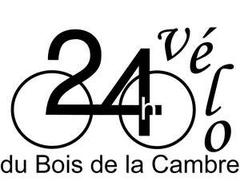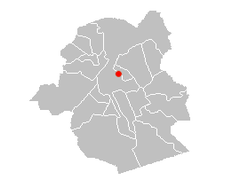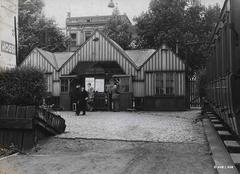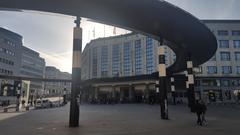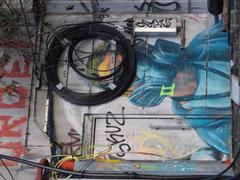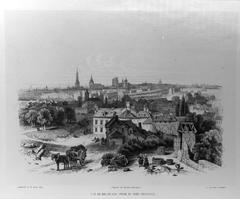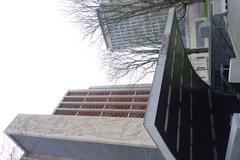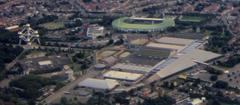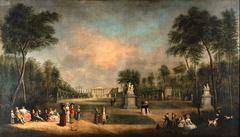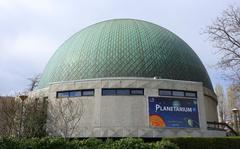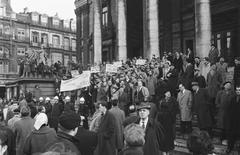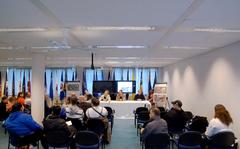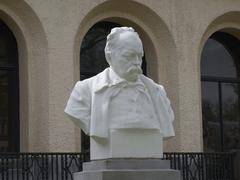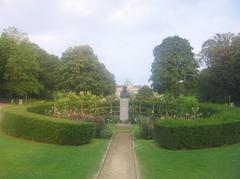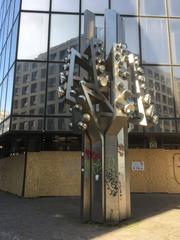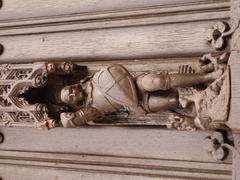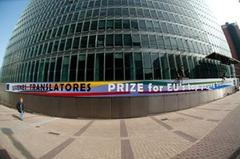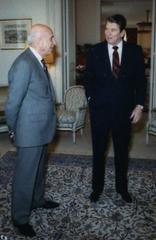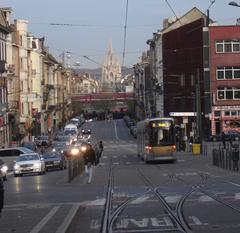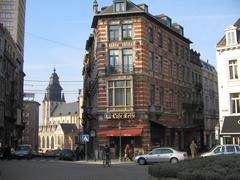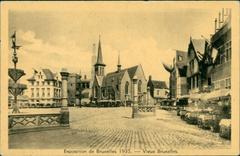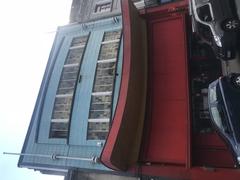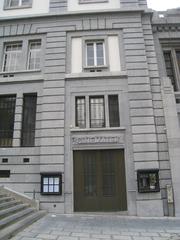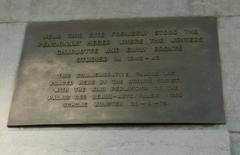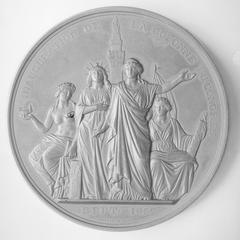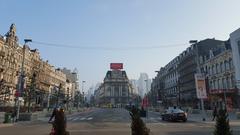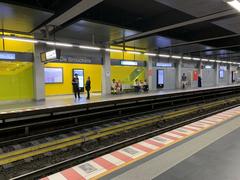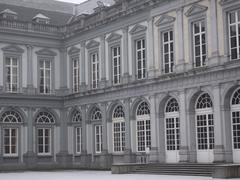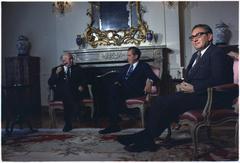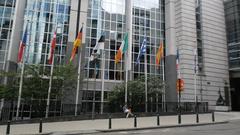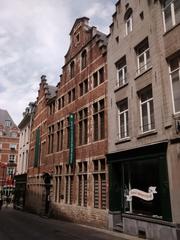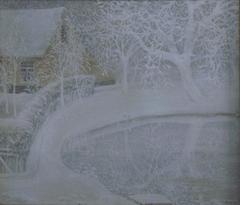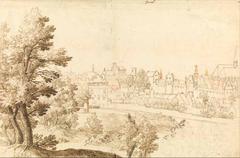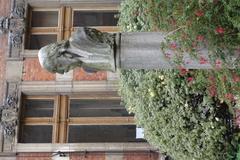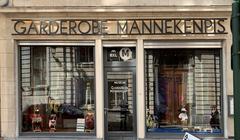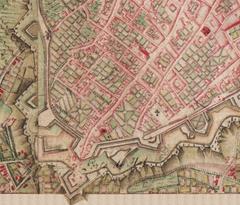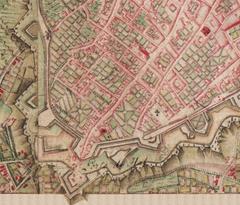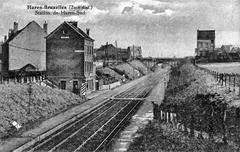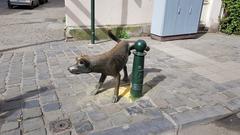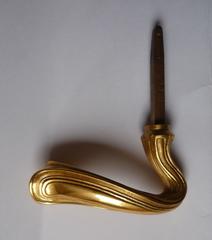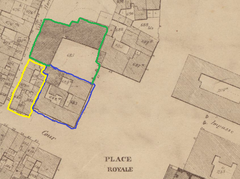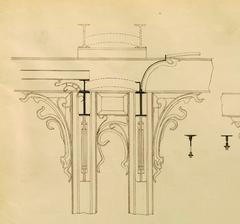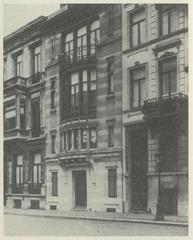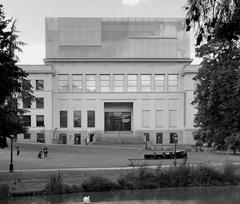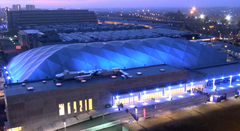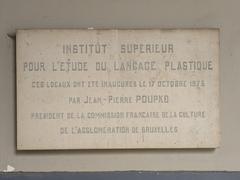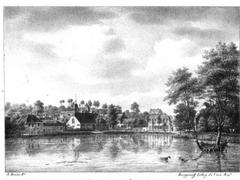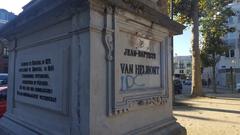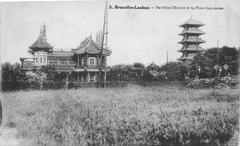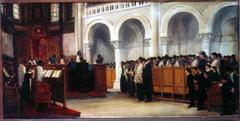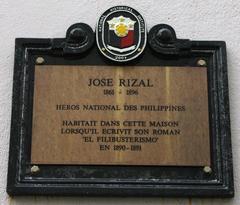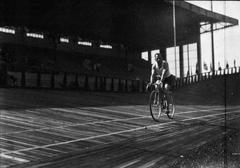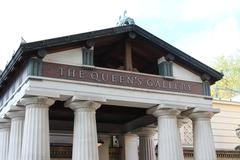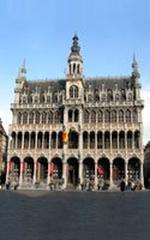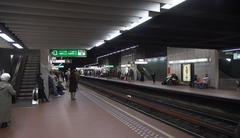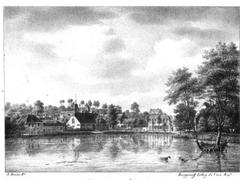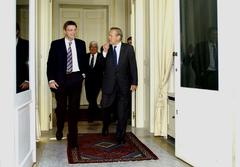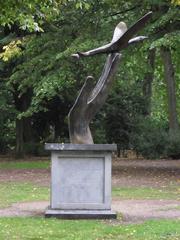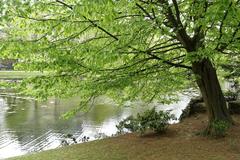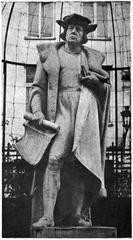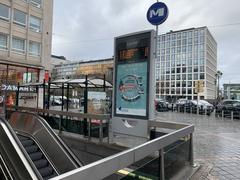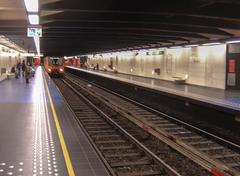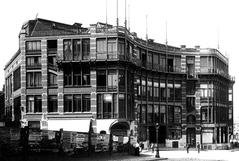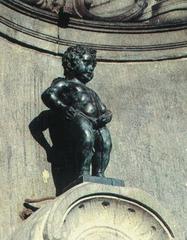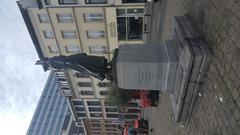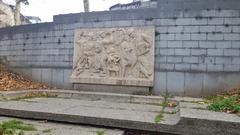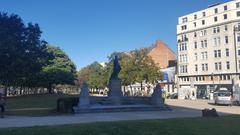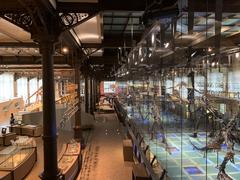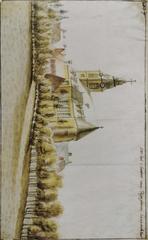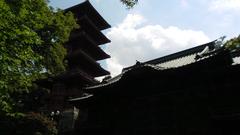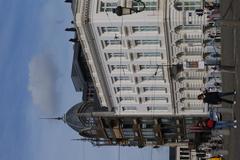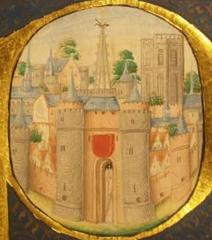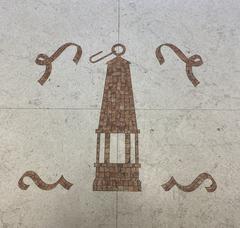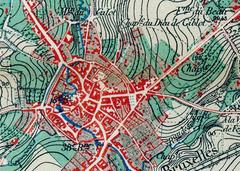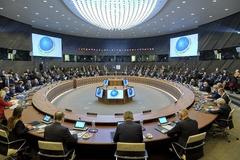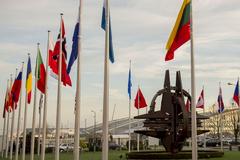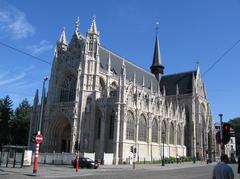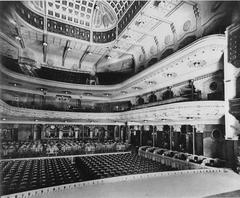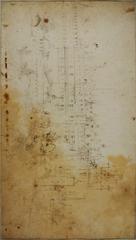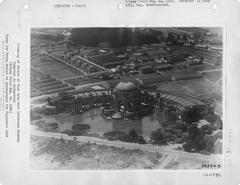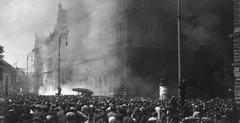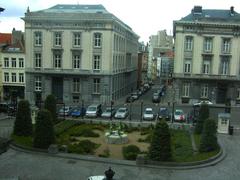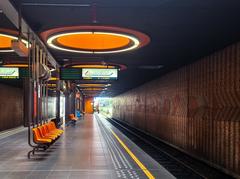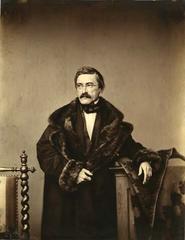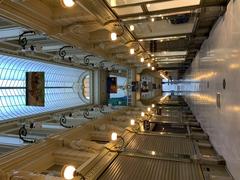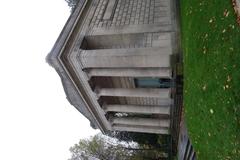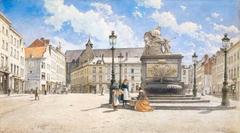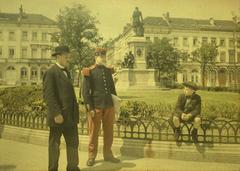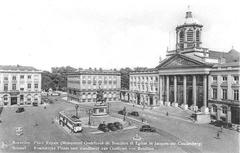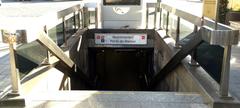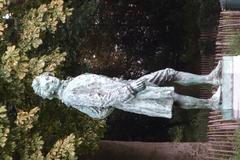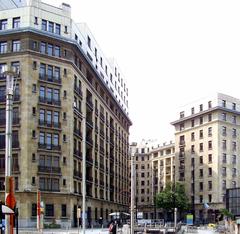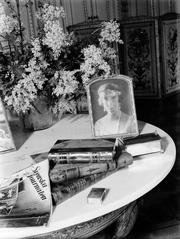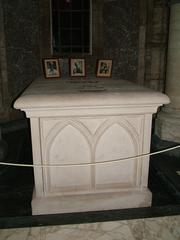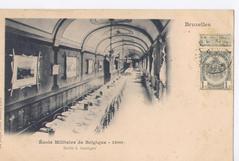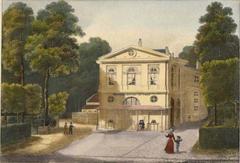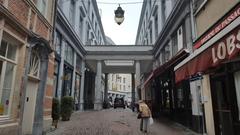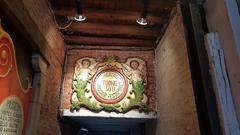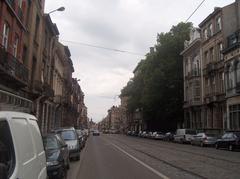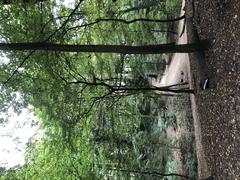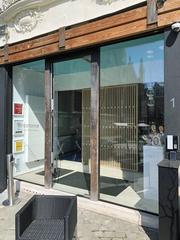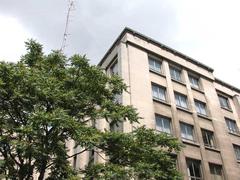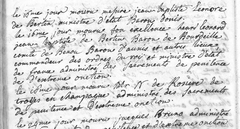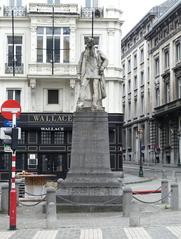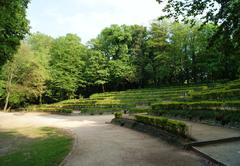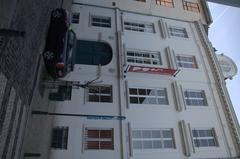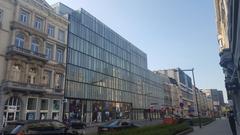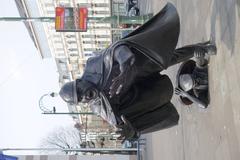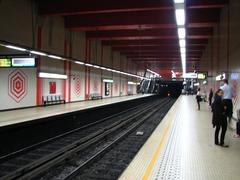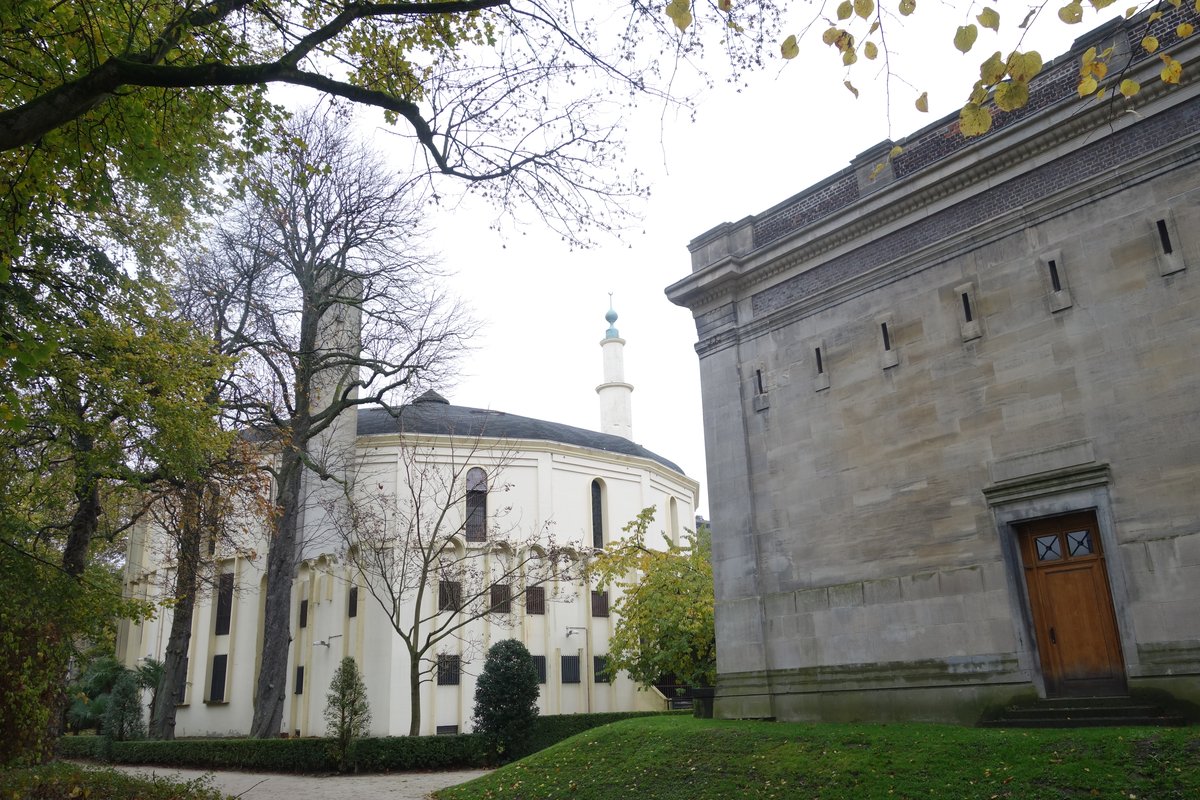
Great Mosque of Brussels: Visiting Hours, Tickets, and Historical Significance
Date: 15/06/2025
Introduction
Located in the lush Parc du Cinquantenaire, the Great Mosque of Brussels is a captivating landmark that embodies the intersection of Belgium’s architectural heritage and its multicultural identity. As Belgium’s oldest and most prominent Islamic place of worship, the mosque is not only a spiritual center, but also a hub for cultural exchange and education. This guide offers detailed information on visiting hours, tickets, guided tours, etiquette, accessibility, and nearby attractions, ensuring an informative and respectful visit for all who wish to explore one of Brussels’ key historical sites. For authoritative background, see Wikipedia, HalalTrip, and Brussels.com.
Table of Contents
- Historical Origins and Architectural Evolution
- Transformation into a Mosque and Islamic Center
- Cultural and Community Role
- Visiting Information: Hours, Tickets, Tours, and Etiquette
- Accessibility and Facilities
- Nearby Attractions and Travel Tips
- Frequently Asked Questions (FAQ)
- Conclusion
- References
Historical Origins and Architectural Evolution
From Oriental Pavilion to Brussels Landmark
The Great Mosque of Brussels originated as the Oriental Pavilion, designed by architect Ernest Van Humbeeck for the 1880 National Exhibition. Its neo-Moorish architecture—with horseshoe arches, domes, and intricate tilework—reflected 19th-century European fascination with Islamic art and architecture (Trek Zone). The pavilion initially showcased the immersive “Panorama of Cairo,” attracting visitors eager for a simulated Egyptian experience. However, by the early 20th century, the building fell into disuse and disrepair.
Architectural Features
The mosque’s facade is marked by elegant horseshoe arches, a central lead-clad dome topped with a crescent, and geometric patterns typical of Moorish revival style. The absence of a traditional minaret is notable; instead, the dome serves as the vertical focal point within Parc du Cinquantenaire. Inside, the prayer hall is filled with natural light from stained-glass windows, adorned with Quranic calligraphy, and features a mihrab oriented toward Mecca. Additional spaces include a women’s gallery, classrooms, a library, and offices supporting educational and community activities.
Transformation into a Mosque and Islamic Center
A New Role in Belgian Society
In 1967, during a diplomatic visit by King Faisal of Saudi Arabia, King Baudouin of Belgium offered the neglected pavilion as a gesture to foster stronger ties with the Muslim world (Wikipedia). The building was granted to King Faisal under a 99-year rent-free lease, with the intention of converting it into a mosque and Islamic cultural center.
Saudi Arabia oversaw the restoration, and by 1978, the mosque was officially inaugurated. The new design, led by Tunisian architect Boubaker, preserved the Orientalist exterior while adapting the interior for Islamic worship. The mosque became home to the Islamic and Cultural Center of Belgium, offering religious services, Arabic language classes, a research center, and hosting thousands of students and new converts to Islam (HalalTrip).
Changes in Governance
Management of the mosque was long under Saudi control, with imams teaching orthodox Salafism. This approach was later criticized for its perceived lack of integration with local Muslim communities. After the 2016 Brussels bombings, the Belgian government reassessed foreign influence in religious institutions. In 2018, control of the mosque was transferred to the Muslim Executive of Belgium, with the aim of fostering transparency, inclusivity, and local community engagement (Oasis Center).
Cultural and Community Role
Religious and Educational Hub
The Great Mosque of Brussels is a vital center for the Muslim community, hosting five daily prayers, Friday (Jumu’ah) congregations, and key Islamic festivals like Eid al-Fitr and Eid al-Adha (Brussels Express). Its school and research center provide Arabic language instruction and Islamic studies for all ages.
Promoting Dialogue and Integration
Through cultural festivals, open days, interfaith dialogues, and educational tours, the mosque actively promotes intercultural understanding and respect. It regularly collaborates with local authorities, schools, and religious organizations to foster social cohesion and celebrate Brussels’ diversity. Events such as Ramadan iftars and participation in city festivals further integrate the mosque into the broader community (Bruxelles Secrète).
Visiting Information: Hours, Tickets, Tours, and Etiquette
Location
- Address: Parc du Cinquantenaire 14, 1000 Brussels, Belgium (Inside Brussels)
Visiting Hours
- General: Monday to Saturday, 9:00 AM to 6:00 PM. Closed Sundays and during major prayer times. Hours may vary during Islamic holidays or special events. Always check the mosque’s official website or contact them for up-to-date information.
Tickets and Entrance
- Entry: Free for all visitors. Voluntary donations are appreciated to support maintenance and community programs.
Guided Tours
- Availability: Guided tours are available upon request, often for groups, schools, or cultural organizations. Advance booking is recommended. Tours cover the mosque’s history, architecture, and Islamic practices (HalalTrip).
Dress Code and Etiquette
- Dress: Modest clothing is required. Both men and women should cover arms and legs. Women are encouraged to wear a headscarf; scarves may be provided.
- Shoes: Remove shoes before entering the prayer hall.
- Behavior: Maintain quiet and respectful conduct. Avoid walking in front of worshippers during prayers. Eating, drinking, and smoking are prohibited inside. Silence mobile phones and follow staff or guide instructions (Learn Religions), (The Islamic Information).
Photography
- Policy: Photography is permitted in exterior and courtyard areas. Permission is required inside, especially during prayers or in sensitive areas.
Accessibility and Facilities
- Wheelchair Access: Ramps and accessible restrooms are available.
- Restrooms: Facilities for ritual ablutions and general use are provided.
- Public Transport: The nearest metro station is Merode. Several bus and tram lines serve the area.
- Parking: Limited parking is available nearby.
Nearby Attractions and Travel Tips
Parc du Cinquantenaire
The mosque is surrounded by iconic Brussels attractions:
- Royal Museum of the Armed Forces and Military History
- Cinquantenaire Museum (Art and History Museum)
- Autoworld Museum
These sites, together with the mosque, create a rich itinerary for cultural and historical exploration (Brussels.com).
Practical Tips
- Plan ahead: Confirm visiting hours and tour availability in advance.
- Arrive early: Particularly before Friday prayers or during festivals.
- Limit belongings: To ease security checks, bring only essentials (Happy to Wander).
- Engage respectfully: Participate in educational events, but respect the mosque’s primary function as a place of worship.
Frequently Asked Questions (FAQ)
Q: Is admission free?
A: Yes, entry is free. Donations are welcome.
Q: What are the visiting hours?
A: Monday to Saturday, 9:00 AM to 6:00 PM. Closed Sundays and during major prayer times. Check for updates during holidays.
Q: Are guided tours available?
A: Yes, upon request. Advance booking is recommended.
Q: Is the mosque wheelchair accessible?
A: Yes, with ramps and accessible restrooms.
Q: What is the dress code?
A: Modest attire; arms and legs covered. Headscarves for women are encouraged.
Q: Can non-Muslims visit?
A: Yes, visitors of all backgrounds are welcome outside of prayer times.
Q: Is photography allowed?
A: With permission in designated areas, especially inside the prayer hall.
Conclusion
The Great Mosque of Brussels is a unique testament to the city’s rich cultural tapestry, blending Orientalist architectural heritage with a vibrant, inclusive community role. Whether you are a history enthusiast, architecture lover, or a curious traveler, a visit to this mosque offers an opportunity to deepen your understanding of both Islamic heritage and Belgium’s evolving identity. Plan your visit, respect the mosque’s customs, and enjoy one of Brussels’ most significant historical and cultural sites.
For the latest details on visiting hours, guided tours, and upcoming events, consult official sources such as Brussels Express and Oasis Center. Enhance your visit by downloading the Audiala app for guided audio tours and the latest updates, and follow our social media for more insights into Brussels’ vibrant cultural life.
References
- Wikipedia
- HalalTrip
- Brussels.com
- Trek Zone
- Brussels Express
- Oasis Center
- Inside Brussels
- Learn Religions
- The Islamic Information
- Happy to Wander
- Bruxelles Secrète
